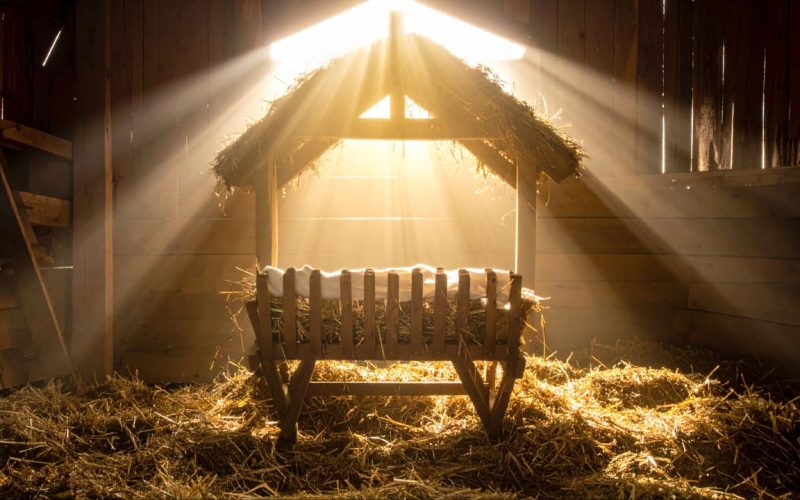It’s a strange paradox, isn’t it? We live in an age of unprecedented options. From the coffee we order to the career path we choose, the world presents us with a dizzying array of choices, more than any generation before us. We have access to more information about life than ever before, yet as author E. Stanley Jones once keenly observed, we seem to know everything about life except how to live it. There’s a quiet, pervasive feeling of being adrift, of having all the puzzle pieces but no picture on the box to guide us. It’s a feeling of estrangement, a deep and central sickness that Jones identified with a single, poignant word: homesickness. We are a generation searching for home, often without even realizing what we’re looking for. We chase our own way, express our own self, and then find to our dismay that we don’t like our way, and we don’t like the self that we’ve expressed. This is the story of our time, but it’s also an ancient story, one that holds the key to the homecoming we so desperately need.
The silent ache of a generation
This feeling of being lost isn’t just a philosophical concept; it has real-world consequences. When we lose our grid for making wise decisions, we find ourselves drowning in the multiplicity of options. Society moves further and further from the very framework that helps life make sense, the one that brings purpose and meaning to our existence. This internal dissonance, this conflict between the life we are living and the one we were created for, can manifest in profound ways. We see it in the rising tides of anxiety and depression. It’s as if our very souls are rejecting a life lived outside the will and purpose of God. We are trying to justify a path that our own being knows is wrong, and the strain is becoming unbearable. In this state, we desperately seek the approval of others to combat the disapproval we feel in our own hearts, creating a cycle of fear and oppression that tightens its grip with each passing day. We are longing for something true, something right, something life-giving, but we keep looking in all the wrong places.
When “having it all” leads to having nothing
This profound human dilemma is captured perfectly in a story Jesus once told about the prodigal son. You might remember it. A young man, filled with a desire for independence and self-expression, goes to his father and makes an audacious demand: “Give me my inheritance now.” He takes his share, travels to a distant land, and proceeds to live out every fantasy. He parties, he spends, he lives entirely for himself. He does as he likes. But then, inevitably, the money runs out. To make matters worse, a famine strikes the land. The party is over. The man who wanted everything finds himself with nothing. His journey of self-discovery leads him to the lowest possible place for a Jewish man: a pigsty. He’s so destitute that he takes a job feeding pigs, and he becomes so hungry that the slop he feeds them starts to look like a feast. It is in this moment of absolute degradation, this rock bottom of his own making, that clarity finally strikes. He thinks to himself, “Even the servants in my father’s house have it better than I do. They have all their needs taken care of.” In his desperation, a sliver of hope emerges. Maybe, just maybe, he can go back. Not as a son—he feels he has forfeited that right—but as a servant. “Father,” he rehearses, “I have blown it. But at least let me come back as a servant in your house.” This story isn’t just an ancient parable; it’s a mirror reflecting our own journey away from our source, and the painful, humbling realization that the freedom we chased was a cage in disguise.
The message we almost missed
The son’s journey back to his father is a beautiful picture of what E. Stanley Jones called the “feel of homecoming.” Everyone who comes back to Christ and His Kingdom has this feeling. But what is this kingdom? For many, the “Kingdom of God” sounds like a lofty, abstract concept, maybe something preachers throw around or a topic reserved for the distant future after we die. We might think Christianity is all about the cross, Jesus, and the Holy Spirit, with the Kingdom being some peripheral sub-point. But this is a profound misunderstanding. The Kingdom of God is not a footnote; it is the message. It is the central, non-negotiable theme of the entire Christian life. It was the message that John the Baptist preached in the wilderness, crying out, “Repent, for the kingdom of heaven is at hand!” He was preparing people for the arrival of this new reality. More importantly, it was the very message that Jesus Himself preached. Have you ever considered that Jesus wasn’t primarily preaching the gospel of the cross? He couldn’t—He hadn’t been there yet. When He tried to talk about it, His own disciples rebuked him. So, what was His good news? The Bible is explicit: he went throughout Galilee “proclaiming the gospel of the kingdom.” He said, “I must preach the good news of the kingdom of God to other towns as well for I was sent for this purpose.” This was His mission. This was His message. You cannot receive Jesus without receiving His message, and His message is the Kingdom of God.
An upside-down world that makes perfect sense
So, what does this Kingdom look like? It’s a reality where God’s ways are right, true, and profoundly life-giving. It often appears to be an “upside-down kingdom,” operating on principles that are the exact opposite of the world’s. Jesus said that if you try to save your life, you will lose it, but if you lose your life for His sake, you will find it. In this kingdom, the way to get promoted is to serve lower. The way to gain is to give away. It’s an oxymoron that makes perfect sense once you experience it. Why? Because when we subject ourselves to the laws of God’s Kingdom, we are finally living in alignment with the way we were created to be. It’s like a fish finally returning to water. The pressure is off. We find freedom, joy, and a sense of vitality because we are no longer fighting against our own design. We can trust the laws of this Kingdom because we can trust the Lawgiver. Jesus showed us what the Father is like; he said, “If you’ve seen me, you’ve seen the Father.” Because we know Jesus is good, trustworthy, and loving, we know the Father is too. Therefore, we can be sure that His Kingdom is not designed to oppress or control, but to liberate us into the fullness of who we were meant to be.
A cautionary tale from history
The human heart’s deep-seated hunger for this kind of all-encompassing framework is powerful, and if it’s not filled with the right thing, it will be filled with the wrong one. E. Stanley Jones shared a chilling story from his time speaking in a cathedral in West Germany right after World War II. As he spoke about the Kingdom of God, he noticed prominent German leaders on the front rows pounding their fists on the benches. He was puzzled, unsure if they were for or against his message. Afterwards, they explained. “You seem to sense why we turned to Nazism,” they told him. “Life for us was at loose ends, compartmentalized. We needed something to bring life back into wholeness, into total meaning and goal. We thought Nazism could bring that wholeness. We chose the wrong totalitarianism.” They were pounding the benches in the grief of a missed opportunity, realizing that the wholeness and purpose they were so desperately seeking was, in fact, the Kingdom of God. This story is a stark warning. Today, we see society again crying out for a system that will produce righteousness, justice, and purpose. People are hungry for something that makes sense of the pain and chaos. If we, who know the answer, relegate the Kingdom of God to a future heaven and deny its ramifications for now, society will inevitably try to fill that void with another man-made system—one that controls and oppresses rather than frees. ️
The kingdom that touches everything
The Kingdom of God is not another box to add to our compartmentalized lives—a “spiritual life” box separate from our “work life,” “home life,” and “private life.” Jesus used a powerful metaphor to explain its nature. He said, “The kingdom of heaven is like leaven that a woman took and hid in three measures of flour, till it was all leavened.” Leaven isn’t a separate ingredient you can pick out of the bread once it’s baked; it works its way through the entire dough, changing it from the inside out. That is how the Kingdom of God operates. It is a hidden reality that affects every single area of our existence. It has ramifications for our finances, our relationships, our business acumen, our creativity, our art, and our inner thoughts. It brings wholeness by breaking down the artificial walls we erect between the sacred and the secular. God loves the meticulous skill of the craftsman and the broad strokes of the visionary. His Kingdom empowers all of these areas because it is God’s total answer to man’s total need. It doesn’t just save our souls for eternity; it brings purpose and freedom to our lives right now.
Building on rock when the ground is shaking
If the last few years have taught us anything, it’s that the ground beneath our feet is not as stable as we thought. Economies, political systems, cultural norms—everything that can be shaken is being shaken. In the midst of this profound instability, the Bible offers a staggering promise. In Hebrews chapter 12, it says, “Therefore let us be grateful for receiving a kingdom that cannot be shaken.” In a world of constant change and uncertainty, there is one thing that remains firm, one thing that is eternally stable: God’s Kingdom reign. And here is the incredible truth: to the degree that we submit our lives to that unshakable Kingdom, we don’t have to be shaken either. It becomes the foundation upon which we can build our lives, our families, and our futures with confidence. We have a guarantee of His peace, His righteousness, and the joy of the Holy Spirit, a life that flows in us and through us, no matter what is happening around us. This is not a denial of reality; it’s the choice to stand in a place of hope in the face of reality, because we serve the God of hope.
Your invitation to come home
This is the big deal about the Kingdom of God. It’s not just a topic; it’s the entire message. It was Jesus’ central purpose, the message He backed up with signs and wonders, and the subject He spent 40 days teaching His disciples about even after His resurrection. It is the framework for a life of freedom, the answer to our soul’s homesickness, and the unshakable reality in a shaking world. That is why Jesus commanded us to “seek first the kingdom of God.” C.S. Lewis put it this way: “Aim at heaven and you will get earth thrown in. Aim at earth and you will get neither.” The invitation today is simple but profound. It’s an invitation to stop aiming at the earth. It’s an invitation to come home. It’s a decision to trust the Lawgiver, knowing He is good. It’s a choice to surrender your own way, which has led to the pigsty of dissatisfaction, and receive His way, which leads to life. It’s a decision to make this year a year for the kingdom—to learn what it is, apply it to your life, and discover, day by day, the incredible treasures of what it means to truly be home.






